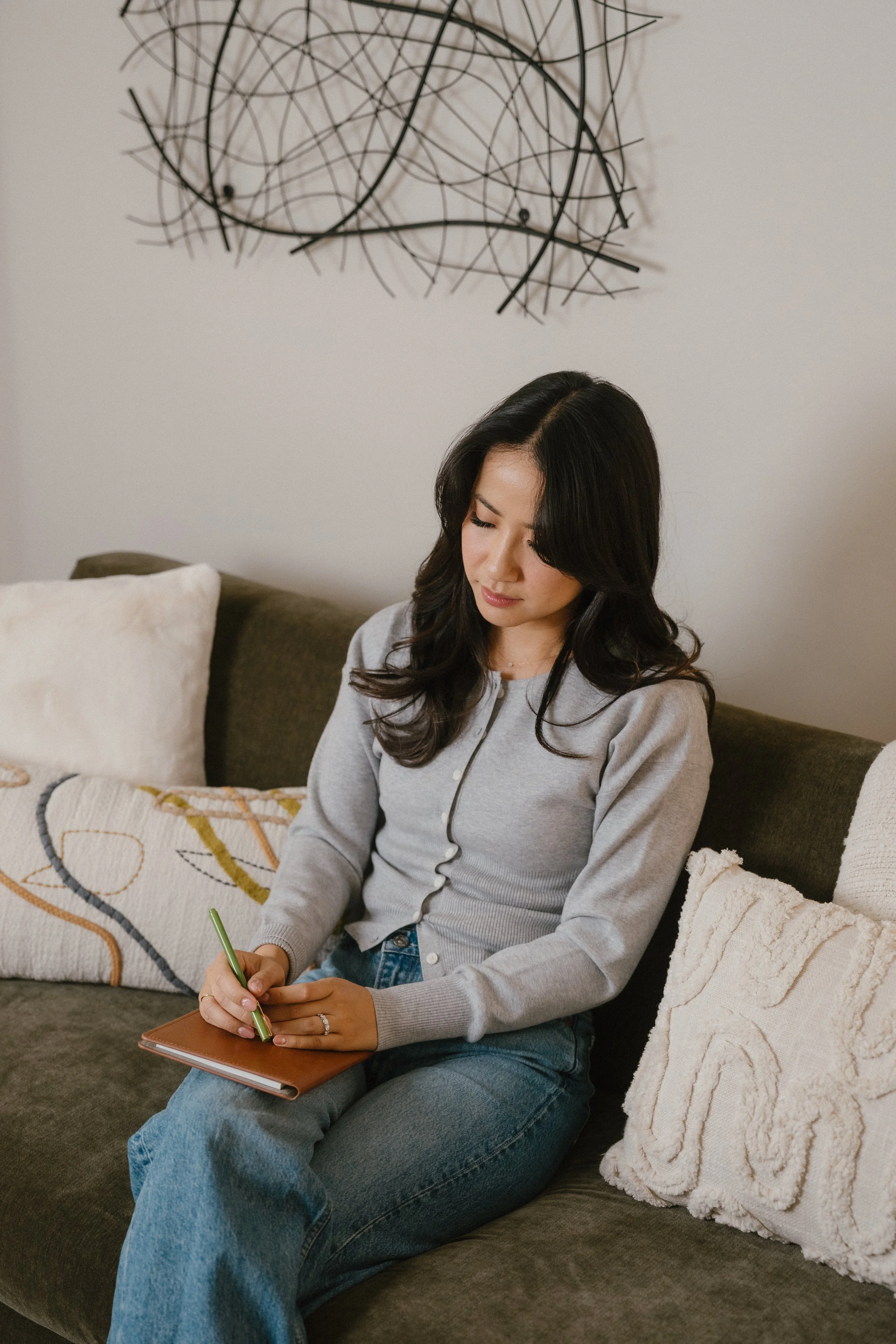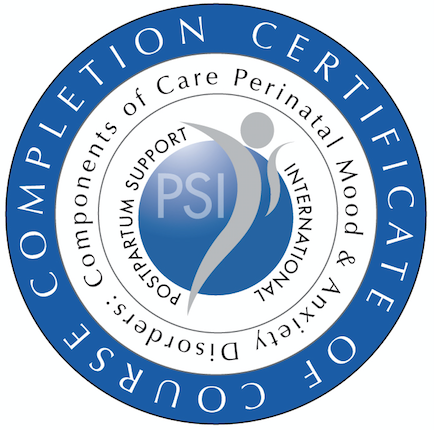
I am passionate about helping you reach your fullest potential. Make an impact on your quality of life.
Meet Michelle Vo
Hi there, it's great to have you here. I, too, believe it's essential for you to know who I am and how I may appear as your therapist or professional consultant!
I am a Vietnamese American, a first-generation college graduate, and a professional. I am the first in my family to attend college and embark on a career path. I am a proud social worker who cares deeply about social justice. I am passionate about mental and behavioral health, women's rights, community, and staying connected to our cultural identities. I am a big-feeler, a compassionate and reliable therapist who provides trauma-informed and sensitive care to my clients and beyond. In my conversations, you'll find that I explore systemic racism and issues, capitalism and corporate stress, by providing modernized therapy through a lens of education and empowerment that helps my clients engage in value-based living.
Outside of my professional work, I am the daughter of Vietnamese immigrants, a wife and friend, an uncoordinated but joyful dancer, and the owner of two chaotic dogs (Ava and Penny, pictured below!).
I enjoy creating meaningful connections and contributing to communities I deeply care about, such as empowering youth, providing services to discuss mental health, and celebrating my Vietnamese roots. To relax and enjoy my leisure time, I listen to my recent playlists on Spotify, people-watch in a cafe, and daydream about my next trip with my family.
My story as a first-generation Vietnamese American
I grew up in the Bay Area, a culturally diverse melting pot where things naturally felt like home for someone who like me. My middle and high school classmates were all in the same boat; our parents are Vietnamese working-class immigrants, and as first-generation children, we had the chance to “lead better lives.”
Being around those who understood our cultural and family backgrounds was comfortable. As I navigated the “American Dream” and the underlying pressures of the Model Minority Myth, I slowly recognized the privilege of higher education and future stability. It was my duty and responsibility.
In school, I consistently volunteered through service organizations and met people from all walks of life. I remember my friends telling me, “Your vulnerability is your superpower!” and I still think about how that has changed the trajectory of my life.
Through conversations with first-generation Asian American peers, I noticed similar patterns of difficulties. We all faced identical waves of guilt and pressure. Although new opportunities were exciting, they triggered feelings of pressure, responsibility, and lived experiences only relevant to first-generation children. We struggled with self-care and rest because we learned of our parents' hard work and grit. We did not know how to operate in any other way, which only made us feel burnt out and disconnected.
There was an unspoken expectation of "giving back" to our families. Whether it be emotionally or financially available, or to show them their version of the American Dream.
I blindly navigated familial boundaries and identity transformations, and as I grew closer to who I was proud to be, I grew further away from the generations before me. As new life experiences continued, emotional distance and relationships with familial or cultural values changed. Effective communication and mutual understanding were hard to bridge.
In my emerging adulthood, I experienced challenges of personal health complications, caregiving for my ill and disabled parent, and acculturating to my personal identity versus my Vietnamese parents' immigrant background and traditions. Yes, I am one of those immigrant children who made calls for my parents' insurance plans, translated medical paperwork, and reviewed treatment plans. I even experienced imposter syndrome first-hand: being a first-generation college student, which only intensified when I moved to graduate school for social work. Being a minority in higher educational settings, training to be a healthcare professional at a young age, feeling misunderstood, unseen, and underrepresented were all challenges I faced continuously. However, the challenges fueled my goals to align with my cultural background and unique experiences. Social workers are trained to better our communities, and I continue to do my part advocating for the mental health profession and the inequities that social workers face. With the exposure of my therapy experiences, the mental health landscape, and stigma, I realized that these everyday experiences were important to me because of my distinctive life path and passions. My individual journey is my own, and I uncovered a pathway to lead a path that could align with my own values and interests, which only amplified my authenticity as a professional.
My calling is to help my clients and communities be mentally resilient and self-accepting.
I understand the importance of a nonjudgmental, curious, and safe space, and I greatly benefited from receiving guidance from an objective mental health professional who took the time to validate and guide me. Something apparent was missing… my therapist was not Asian. It struck me that I needed to be seen by someone who gets it. Some clinical interventions and coping skills, or the shock of learning family traditions and norms, made me feel misunderstood and, at times, even ashamed of my cultural background. But working with my first Asian American therapist changed everything for me.
So, I made it my life’s work to continue practicing authenticity to be a positive figure as an Asian American therapist.
I am profoundly proud to support my Asian and Asian American and first-generation clients.
Therapists are human, too.
Actually, scratch that. Therapists are human first.

As a therapist and social work professional, I learn with and from my clients. Wherever you may be, I consider our therapeutic relationship sacred and hold it with gentle care.
I intend to meet you on your current path toward your journey, with great humility, compassion, and an open mind. I invite my clients to correct me and hold me accountable, as I practice curiosity and learn how to show up as a safe person in your life.
Education & Experience
I have been a mental health clinician for nearly a decade. I have experience working in nonprofit mental health acute residential settings and major hospital organizations in Michigan and California. I’ve also worked with adults with acute mental illnesses in Partial Hospital and Intensive Outpatient Program settings. In addition, I’ve treated clients through Evidence-Based Solution Focused Therapy for depression and anxiety, trauma and stress, pregnancy, and postpartum mood symptoms in an OB-GYN & Women's Clinic, and provided Behavioral Health Consultations for medical doctors and nurse practitioners in a primary care setting.
Through my professional training and fellowship experience, I developed a strong background in evidence-based treatment interventions, including:
Cognitive Behavioral Therapy (CBT)
Dialectical Behavioral Therapy (DBT)
Acceptance and Commitment Therapy (ACT)
Mindfulness-Based Cognitive Therapy (MBCT)
Compassion-Focused Therapy (CFT)
Interpersonal Psychotherapy (IPT)
Narrative Psychotherapy (IPT)
As a therapist, I strive to be patient-centered, focus on treatment needs, and utilize an eclectic approach to the abovementioned modalities. Additional interventions may include, but are not limited to: mental health and psychoeducation on psychotropic medications (with referral), somatic practices, meditation practices, behavioral activation, motivational interviewing, and more.
Work & Fellowship Experience
University of Michigan, Michigan Medicine | Department of Psychiatry.
University of Michigan, Michigan Medicine | Maternal Mood Disorders Program.
Kaiser Permanente | Department of Psychiatry Fellowship.
Kaiser Permanente | Women’s Health Clinic & Early Start Program.
El Camino Health Mental Health & Addiction | Intensive & Partial hospitalization Programs
Lyra Health | Onsite Therapist in Tech.
Training & Certifications
Postpartum Support International.
Components of Care: Perinatal Mood and Anxiety Disorders.
Understanding and Addressing Postpartum Depression in Dads.
Perinatal Mental Health Advanced Psychotherapy Training.
Disruptive Event Management Consultation & Training Certification.
Anti-Oppressive Practices to Promote Culturally Responsive Care
CBT for Adult ADHD.




